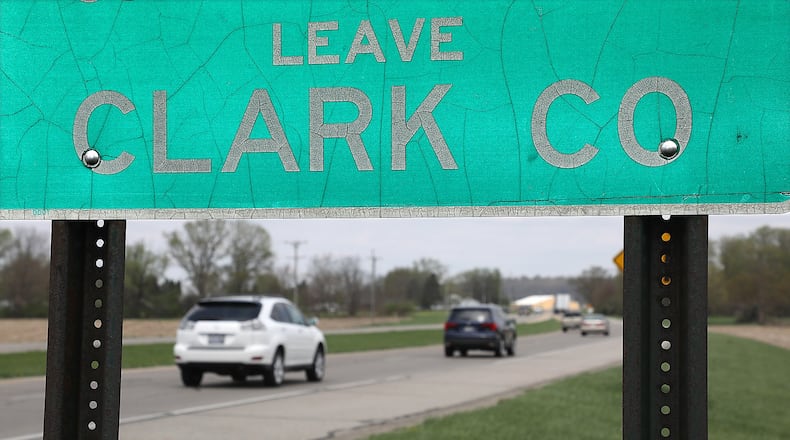For anyone wondering why so many businesses are being allowed to stay open, Clark County Combined Health District health commissioner Charles Patterson offered a detailed explanation in an online discussion hosted by the Chamber of Greater Springfield on Monday night.
“Farmers are critical infrastructure, but then it’s all of their supply chain,” Patterson said. “So anybody that is supplying them with seed or machinery or equipment, with fuel, with fertilizers — those need to remain open because we’ve got fields to plant very soon in Clark County. We’ve got manufacturers working maybe not in the food industry but they’re supplying parts or equipment to food producing industries.”
RELATED: Coronavirus: Businesses should use good judgment about staying open, Husted says
That also applies to those who supply fuel, healthcare workers and first-responders, among others.
“I think it’s very important for our business community to understand how they fit in with those essential services and how they might be part of the supply chain,” Patterson said. “It may only be a part of their business that is directed to that supply chain, but it’s critical we have those folks open and ready for business and make sure that the other critical infrastructure they support is able to continue.”
According to the state, law officers will not stop residents simply for being out of their homes, and activities such as going to and from work, going to the grocery or pharmacy and even just taking a walk are still allowed anyway.
However, people gathering in a group of any size could be asked to distance themselves or go home.
Clark County Sheriff Deb Burchett confirmed her deputies will be following those guidelines.
“The only way we’re going to stop people is if there’s a big congregation of people somewhere,” she said. “Otherwise we’re not going to be out there targeting. We have a lot more to worry about than to be out there targeting people and stopping them for no reason to see why they’re on the street.”
She also suggested those who are required to be out for work obtain paperwork from their employer in case they do encounter law enforcement, and she implored citizens not to direct questions about their work status to 911.
RELATED: Coronavirus: Clark County groceries reserve special hours for seniors, at-risk to shop
“That’s very important,” Burchett said. “We need to keep those 911 phone lines open for emergencies and emergencies only. My best advice for them would be we are not going out there targeting people that are on the streets. The sheriff’s office is not going to be out there targeting people. Just use a little bit of common sense, and please, please do not call 911.”
Here is a list of essential businesses that will stay open: Stores that sell groceries and medicine; food, beverage, licensed marijuana and agriculture; charities and social services; religious organizations; media; gas stations and transportation businesses; financial and insurance institutions; hardware supply stores; critical trades; mail and delivery services; educational institutions; laundry services; restaurants for consumption off-premises; businesses that produce and sell supplies to work from home and supplies for essential businesses and operations; transportation; home-based care and services; residential facilities and shelters; professional services; manufacture, distribution and supply chain for critical products and industries; critical labor union functions; hotels and motels; funeral services.
About the Author

